Analysis for practical solutions
The world around is becoming more and more complex. Making an effective and optimal management decision requires considering an infinite number of many different factors: internal and external, political and economic, social and ideological. The more important it becomes that the country has its own analytical institutes and organizations. Our own methodology for analyzing and assessing the situation, the possibility of independent forecasting are one of the components of sovereignty and national security. Five years ago, the Belarusian Institute of Strategic Research (BISR) was established in Belarus by presidential decree. The key task of this structure is to provide analytical support for the activities of senior government officials. Oleg Makarov, Director of the Institute, speaks about the BISR's principles, its achievements and prospects.
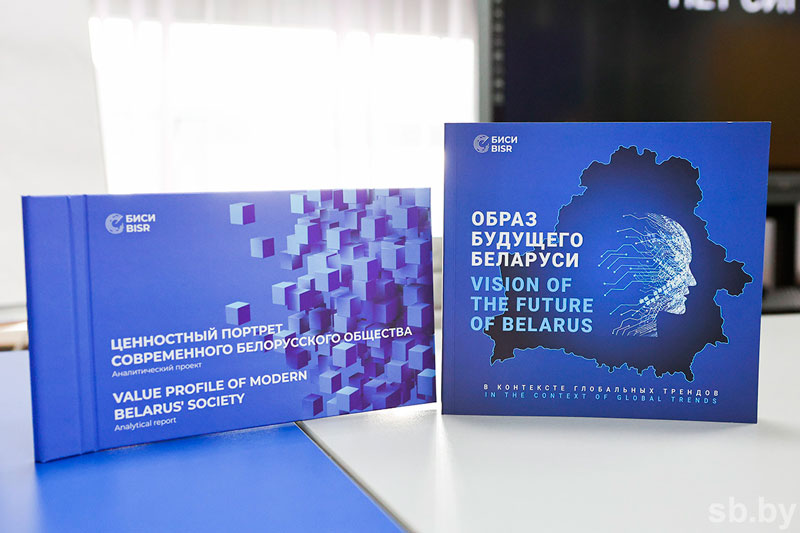
About formation
— Five years have passed in an instant. Every year we had to respond to new challenges and solve the tasks set. We scrupulously studied the methodology and tools of modern analytics, adjusted them based on our conditions, realities, needs and capabilities. Initially, BISR focused on the study of the external contour. But aggravation of the foreign policy situation has transformed into attempts by external actors to actively interfere in our domestic policy, and this has become a particularly urgent challenge for our country. BISR purposefully began to study the Belarusian society: we analyzed internal processes, paid great attention to sociology, and developed a number of analytical products. Including for the analysis of the information space, which today is increasingly becoming a mirror of public attitudes and opinions. Two years ago, we opened regional offices, they provide a study of various trends and processes at local level.
It is incorrect to evaluate the quality of our work ourselves: it should be done by the consumers of our analytics. But today, it is safe to say that in five years, the Belarusian Institute of Strategic Research has passed the stage of formation. We have organically integrated into the system of analytical support for public administration, established fruitful cooperation with all government agencies at the national and local levels.
We managed to join the international guild of think tanks.
They know, respect, listened to us, invite to participate in international projects and support our initiatives.
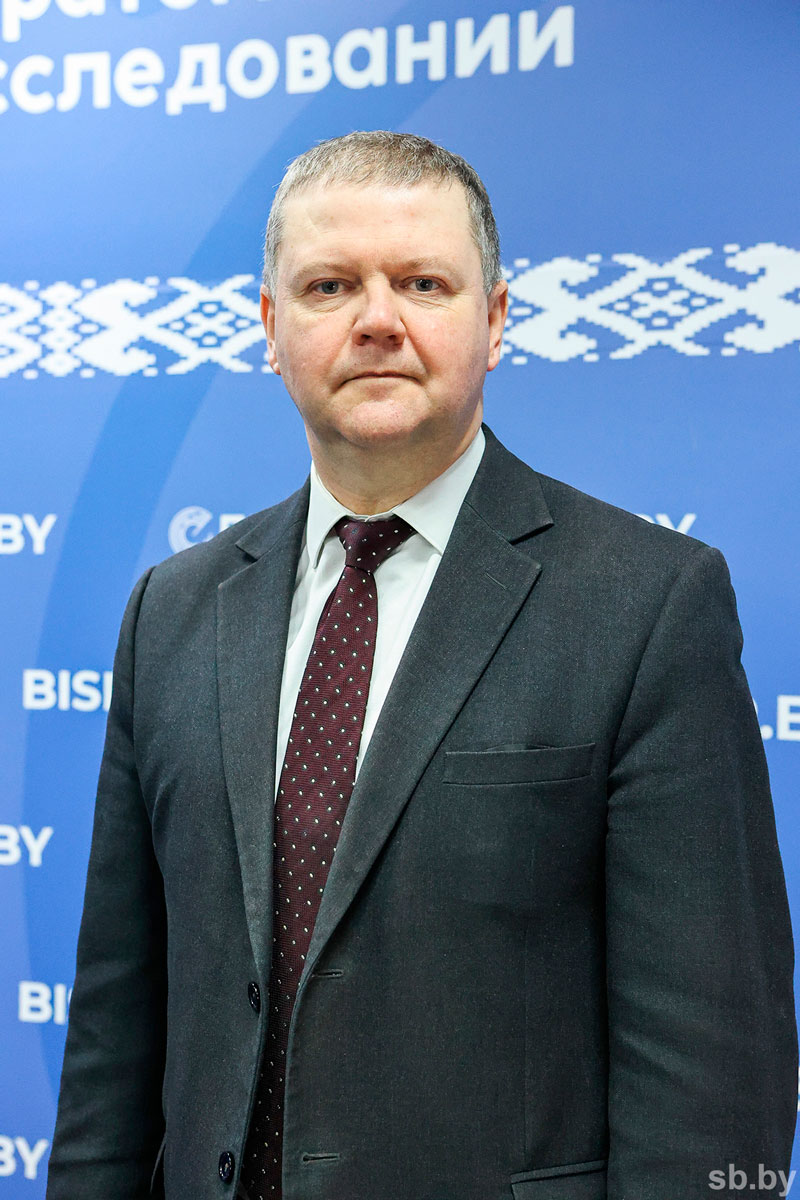
The closest partnerships have developed with colleagues from friendly countries of Belarus: Russia, Kazakhstan, Tajikistan, and China. Cooperation with analytical structures of Turkey, Iran, India and other countries is expanding.
By the way, colleagues from countries whose leaders are currently pursuing a policy unfriendly towards Belarus, are also not losing interest in our activities. Analytics is international, and think tanks, in addition to other diverse functions, implement the principles of "expert diplomacy" in their work. Historically, the confrontation does not last forever, there is a reset of relations. And analysts are the first to participate in this process, who, without populism, find pragmatic and effective solutions for cooperation. Therefore, it is very important to maintain credibility in the international arena. We are doing it well.
Undoubtedly, a lot has been done in five years. All this is thanks to the team. We managed to gather professional, unique people in terms of their intellectual abilities and moral qualities. We have established effective relationships with scientific research structures, whose experts we involve in our research, if necessary. We managed to create a team of like-minded people.
But it's too early to draw conclusions. And in general, analytics is a field of activity where it is impossible to achieve complete perfection: there will always be new heights to strive for.
We are planning to strengthen the direction of economic analytics. We have very ambitious plans to develop forecasting products.
This is an extremely complicated task. Not all think tanks possess such tools in principle. BISR is closely involved in this issue. We are actively developing digital technologies. Undoubtedly, they are the future: the "big data" analysis, the use of neural networks, the monitoring of the information space… Plans are big.
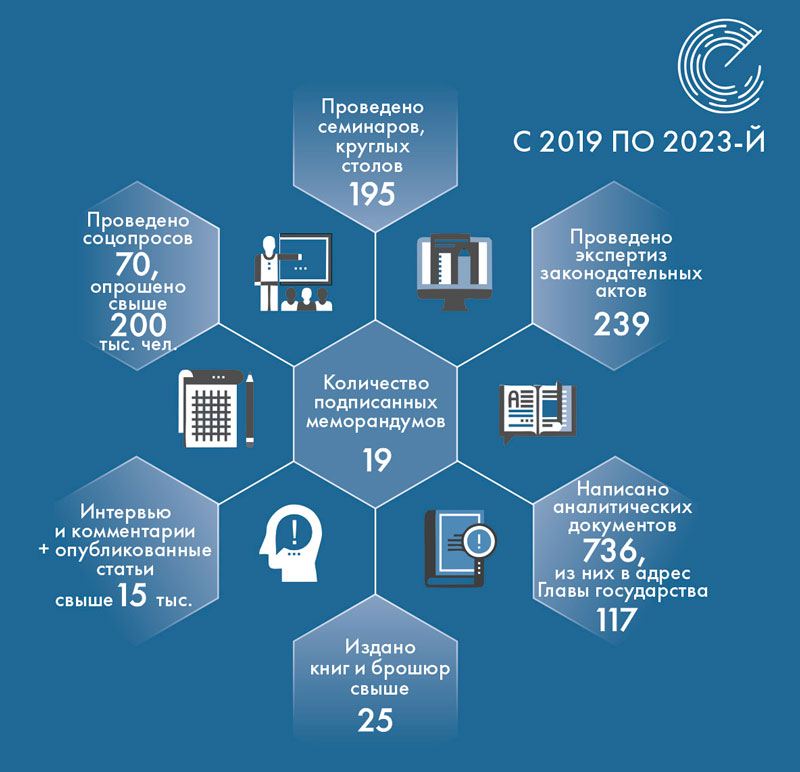
About the high degree of responsibility
– An analyst is a very difficult profession. It is doubly difficult if reports are provided to the top officials of the countries, who are always more informed than any analyst. Everyone knows that our President has a very strong predictive intuition, high awareness and vast experience. Therefore, the quality of our documents must be of a very high level.
The BISR specificity is its focus on solving practical problems. Ideally, we should provide decision makers with a clear and comprehensive analysis of the specific situation, options for solving the problem with a study of all possible risks and a forecast of events development.
The BISR advantage is that we use our own analytical tools that are adapted to the Belarusian reality. This allows us to flexibly and promptly respond to new challenges.
The peculiarity of our analytics is efficiency. We should always act quickly so that research does not lose relevance. It is necessary to assess the resources that the country has. Effective solutions can be developed, but if there are no appropriate forces and means to implement them, then such research becomes useless.
And do not forget that an analyst is always under the threat of making a mistake. And this is not only an incorrect forecast, but also the risk of missing something, not noticing the trend, not recognizing the threat. Even the most experienced professionals make mistakes. But the cost of a miss can be very high if government decisions are made based on incorrect analysis. Therefore, it is very important not to rest on our laurels, but to improve, to introduce new approaches (we use them) to minimize the likelihood of inaccuracies in research.
About the transfer of experience
– Today, BISR owns modern methods and analysis tools. Over the past five years, we have accumulated some experience and competencies and are ready to share them. In my opinion, it would be interesting to create an educational center on the basis of BISR. For example, to improve the skills of employees of government agencies, heads of large enterprises. The analytical component is very important at all levels of the state functioning. And it is advisable to use our potential to transfer BISR's developments. Moreover, a significant number of our employees and experts have academic degrees, relevant knowledge and teaching experience.
Within the framework of the "mandate" that BISR has today, we actively work in the media, participate in socio-political events, meet with collectives and citizens in the regions in order to convey to them relevant, objective and truthful information about events taking place in the world and the country.
A great deal of work is done with young people. BISR has launched a large-scale project for young analysts, involving all universities in the country and the interuniversity analytical clusters that we have created. We see a great interest among students in mastering analytical knowledge, therefore the project is developing.
Colleagues from think tanks of friendly states show considerable attention to our competencies. They have a serious interest in Belarus, because, despite the difficulties, our economy is growing, and the socio-economic model allows us to avoid imbalances and social contradictions. Despite external pressure, the country remains stable and resilient. Therefore, our public administration technologies attract the attention of our partners. Among other things, the achievements of the BISR as an institution integrated into the cycle of government decision-making are in demand.
A VIEW FROM THE REGIONS
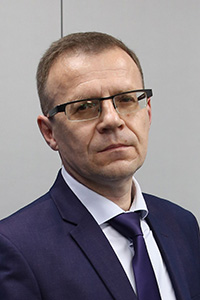 Eduard Severin, Head of the BISR Office for the Brest region:
Eduard Severin, Head of the BISR Office for the Brest region:
— Five years is a small age. But during this time, BISR has occupied his niche. One of the important functions of the Institute is an impartial analysis, in which there are no interdepartmental contradictions. And this allows us to find solutions that are most effective for society and the state. Our own independent analytics is very important for the sustainable development of the country, when the world is rapidly saturated with technologies for manipulating public opinion.
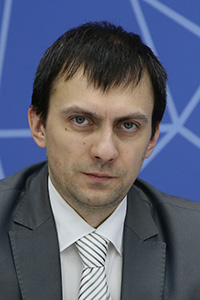 Andrey Mishin, Head of the BISR Office for the Vitebsk region:
Andrey Mishin, Head of the BISR Office for the Vitebsk region:
— Undoubtedly, public administration bodies have their own system of making managerial decisions. But the BISR competencies make it possible to look at the problem from the outside, to find new, alternative ways to solve it. We have filled this niche and are working closely with the heads of the region and districts. In particular, we conduct sociological research, the results of which allow us to better see the situation in the region, moods of citizens, their expectations from authorities.
 Valery Buslov, Head of the BISR Office for the Gomel region:
Valery Buslov, Head of the BISR Office for the Gomel region:
— Over the two years of BISR activities in the region, we have organically fit into the structure of public administration bodies. We have become recognizable, our opinion is respected and taken into account. The events that take place on our site have a lively response from both participants and local leaders. Our experts participate in many working groups that develop strategic documents for the development of the region, which means they trust us.
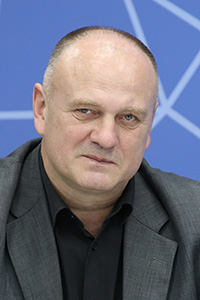 Sergey Kosarev, Head of the BISR Office for the Minsk region:
Sergey Kosarev, Head of the BISR Office for the Minsk region:
— The peculiarity of the BISR work in the Minsk region is that there are no administrative centers, higher educational institutions, specialized research institutions in the region where they would be engaged in analytical research in a substantive manner. BISR has closed this niche and reliably provides the leadership of the Minsk region with analytical information.
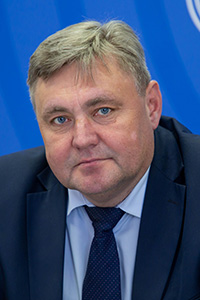 Vladimir Zalomai, Head of the BISR Office for the Grodno region:
Vladimir Zalomai, Head of the BISR Office for the Grodno region:
— We implement comprehensive research and analysis of a wide range of spheres of life: education, healthcare, labor market, industry, agriculture… We provide authorities with a variety of analytical information to make effective decisions. Now we are starting a serious sociological survey on social attitudes in the region: we are studying the level of satisfaction with living conditions, jobs, and infrastructure. These data will undoubtedly provide an opportunity to better understand people's expectations, allow them to make decisions that will, among other things, help attract personnel to the region.
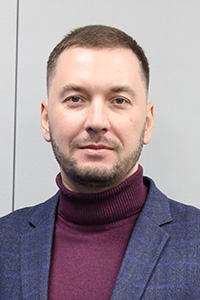 Igor Matsyganov, Head of the BISR Office for the city of Minsk:
Igor Matsyganov, Head of the BISR Office for the city of Minsk:
— In five years, BISR has created a name for itself, earned trust. The peculiarity of working in Minsk is that many strategic decisions are made in the capital, innovations are introduced, which are then scaled throughout the country. In the capital, there is an opportunity to communicate with high-level managers who have the authority to make important management decisions. This increases the importance of our analytics, but also imposes increased responsibility on us.
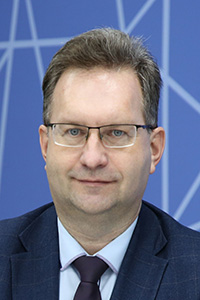 Oleg Koropov, Head of the BISR Office for the Mogilev region:
Oleg Koropov, Head of the BISR Office for the Mogilev region:
— Creating regional offices of the BISR was a very correct decision, as it allowed us to receive objective and verified information at local level. We are closely engaged in regional sociological research, thanks to which we identify the pain points of our society. We monitor the situation daily through the prism of the information space. The methodology and tools of the BISR allow for analytical support of socio-economic and socio-political processes in the region.

